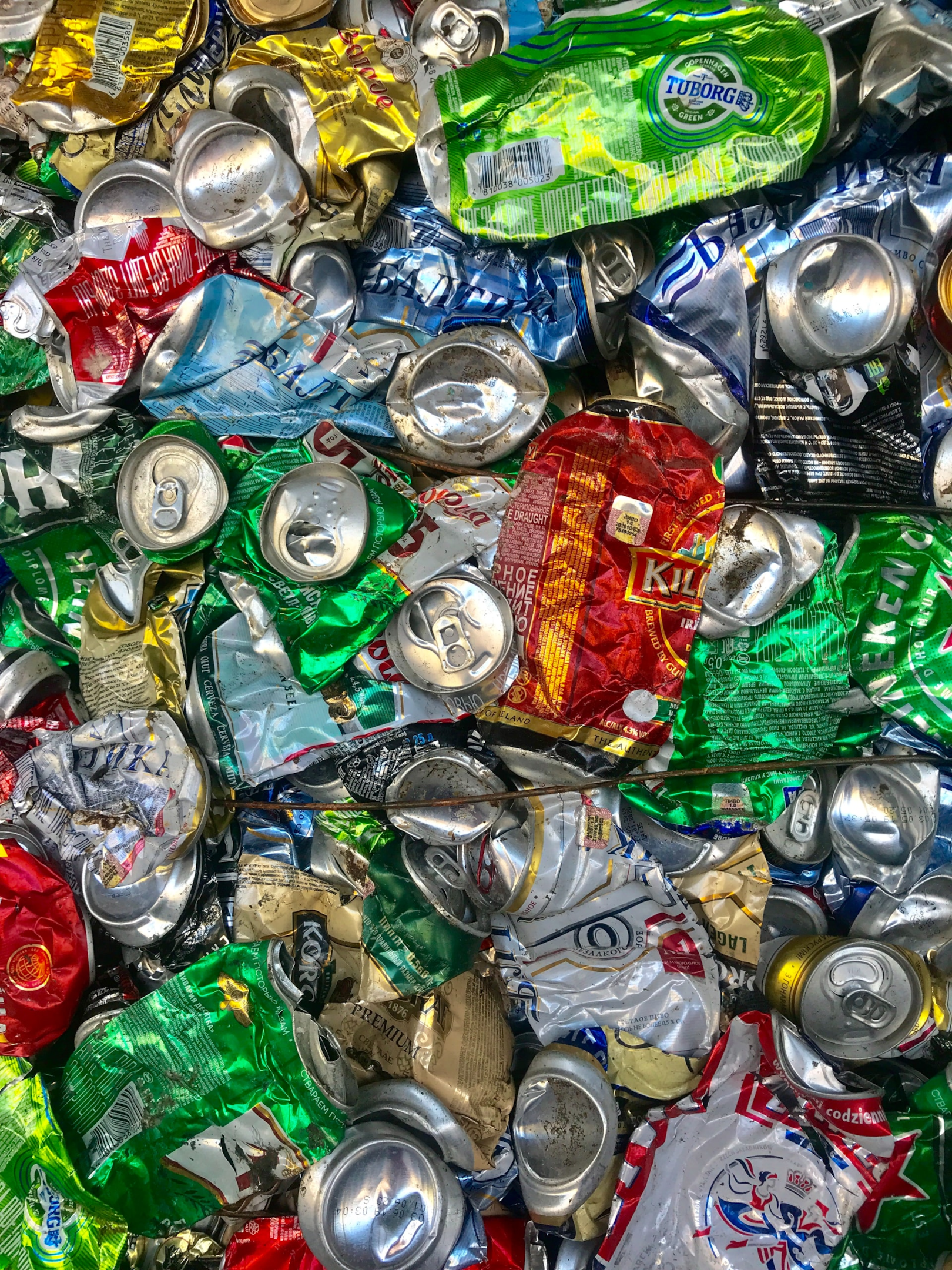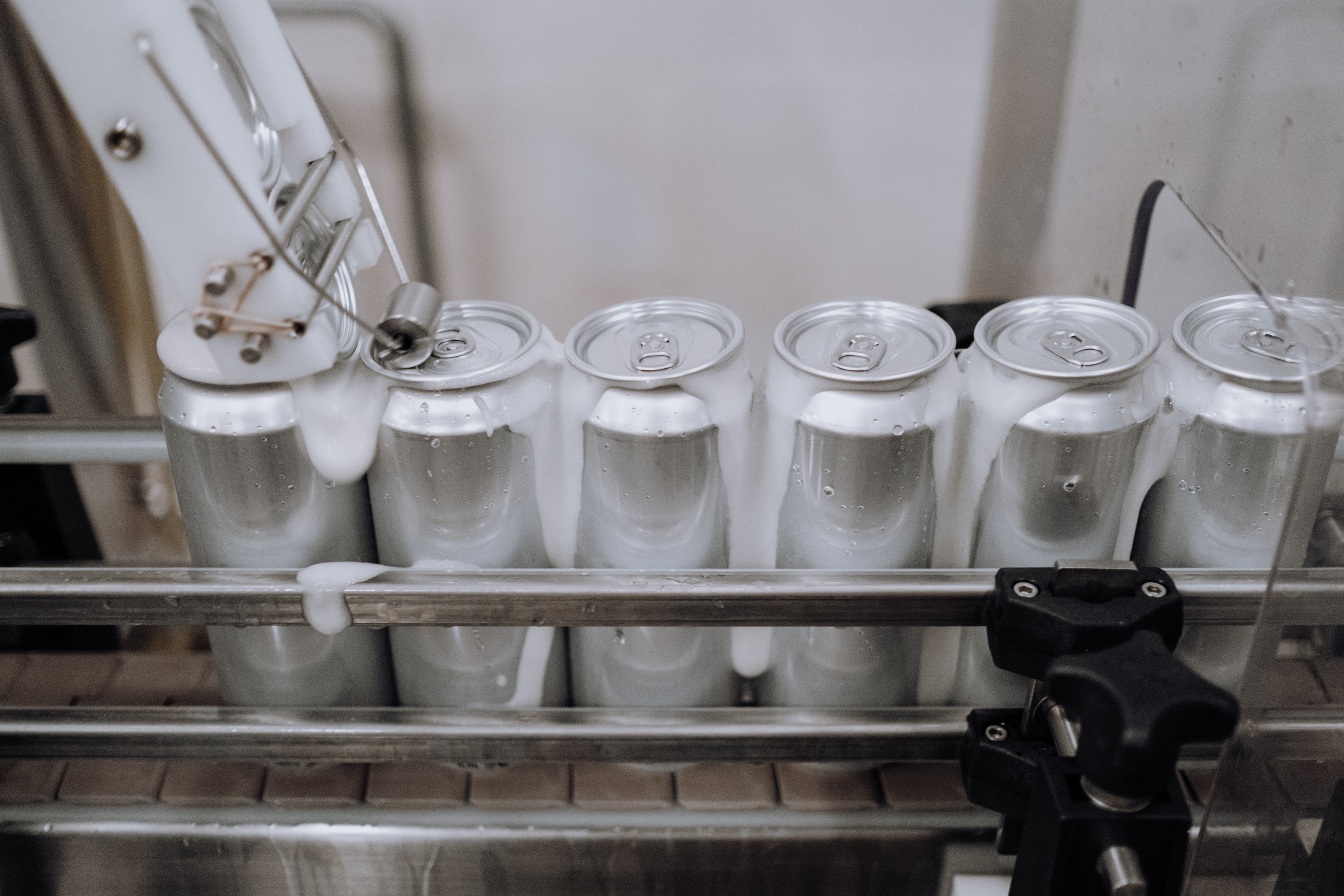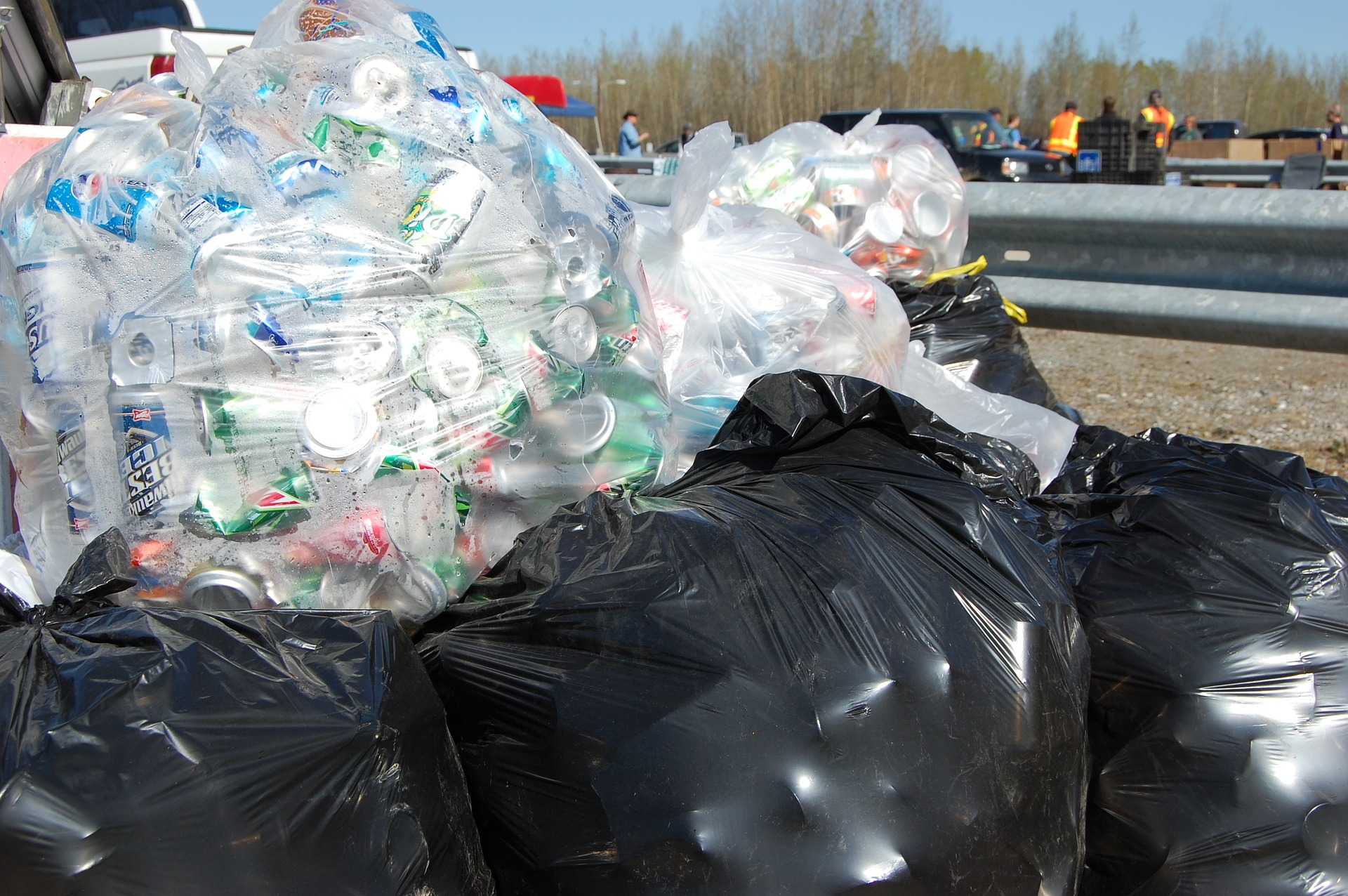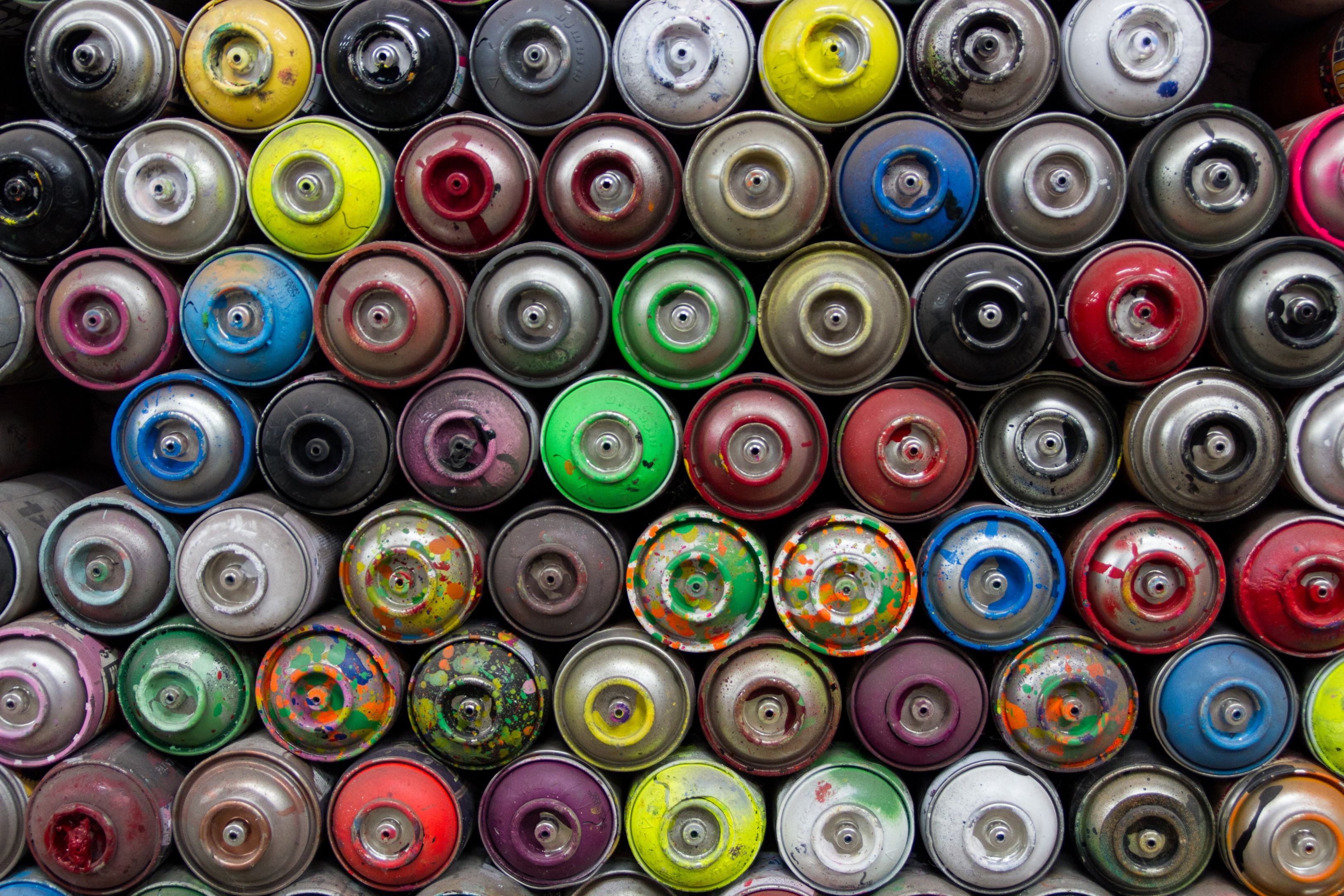
Aluminium is the most cost-effective and efficient material to recycle. For years now, the aluminum industry in the UK has been taking advantage of this fact to reuse 75% of the over 9 billion aluminum cans produced each year through closed loop recycling.
In the effort to attain higher aluminium recycling rates, the UK government, through the Department for Environment, Food and Rural Affairs (DEFRA), sets annual recycling targets. The aluminium recycling target for this year (2022) is set at 69%, up from 66% in 2021.
While this target is low and has been criticised as unambitious, the expectation is that it will go up with enhanced producer and consumer responsibility.
Part of the efforts to improve both consumer and producer responsibility is enhancing knowledge on aluminum production and recycling, which is also the purpose of this article.
How to Recycle Aluminium

Although aluminum is the easiest material to reprocess, the recycling process is complex. The recycling process happens in 5 main stages:
- Collecting
- Sorting and Cleaning
- Melting and Casting
- Rolling
- Product Cupping
Stage 1: Collecting
Collecting happens from two sides:
- The consumer deposits aluminium cans, foil, and other aluminum food and drink packaging at kerbsides, can banks, or cash for cans centres.
- Agents from local councils and waste management companies collect the large quantities of aluminium cans and other aluminum recyclables from the deposit points and bring them to the treatment plant.
Stage 2: Sorting and Cleaning
Aluminum cans and packaging brought to the materials recovery facility (MRF) are prepared for the recycling process. They are sorted, flattened, and compressed into bales. The aluminium cans are then shredded into small pieces. The pieces are washed, and hot air is passed through them to remove any decoration.
Stage 3: Melting and Casting
The cleaned aluminum shreds are melted at extremely high temperatures (around 750°C). The molten aluminium flows into moulds, where it is cast into large blocks known as ingots.
Stage 4: Rolling
Aluminum ingots are transferred to a rolling mill and rolled out into sheets. The thickness of the metal sheets is determined by the type of product they will be used to make.
Stage 5: Product Cupping
Aluminum sheets are lubricated and cupped or formed into different products including drink cans, food packaging containers, and chocolate wrappings.
The products are then treated with lacquer, a protective coating from resin that prevents the food and drink in aluminum containers from reacting with the metal. Lacquer also creates the base for decorating aluminum products such as the coca cola cans you see daily.
Ready aluminium products are then sent to manufacturing firms for filling. Products like food packaging containers and aluminum foil are sent to supermarkets and distribution stores.
Where to Recycle Aluminium Near Me

Aluminum drinks cans, food packaging containers, and foil wrapping can be recycled by depositing them at one of these collection points near you:
Can Banks
These are found in supermarkets, offices, leisure facilities, shopping centres, or other waste-managed sites run by local councils.
You can search for an aluminum recycling bank near you using the “Where to Recycle” feature on waste management service providers’ websites.
A good example is the one by recycle-more.co.uk. The online recycling locator service lets you find a recycling can bank near you by keying in your postcode and then hitting the “Go” tab to complete the search.
Kerbsides
These are collection points by the roadside next to your doorsteps. As such, they are easy to locate and access. Kerbsides are managed by local councils.
Some local councils restrict on the use of kerbside recycling points and only allow residents to drop off recycling products. We recommend you check with the local authority before depositing at a local kerbside.
Cash From Cans
Cash from cans is a recycling initiative that lets you earn money for delivering aluminium cans. A kilo of aluminum cans (around 70 cans) goes for approximately 40-50 pence.
There are many ‘cash from cans’ dealers in the UK, and you can use online recycling locators like the one on the Think Cans website to find one near you.
The site has a drop arrow where you choose your region and click “Find” to locate a ‘cash from cans’ dealer close to you.
Aluminium Cans Recycle Campaigns
There are campaigns in the UK and all over Europe that promote can recycling while on the go. A good example is the “Every Can Counts” campaign by alupro.
One of the initiatives run by the “Every Can Counts” campaign is helping you find a local collector near you. The overall purpose of the campaign is to redirect every aluminum can into the recycling loop, even when it is not used at home. You can find where to recycle near you by calling “Every Can Counts” at this number, 01527 597 757, or email them here.
Aluminium Scrap Metal Dealers
Some companies in the aluminum industry dealing with aluminium scrap metal will buy your aluminium scraps if you bring them to their company. Businesses that purchase scrap aluminum are usually dealers in used cars, such as ASM Auto Recycling.
ASM recycles thousands of tons of aluminium scrap, and you can use their “Click Here to Sell Your Scrap Aluminium” feature to locate an ASM depot near you.
Why Recycling Aluminium is Important

Apart from promoting a circular economic, recycling aluminium has the most environmental benefits compared to other recycled material like glass, plastic, and steel.
Below are the top 3 reasons why recycling aluminium is important:
- The inherent properties of aluminum do not change with use, and it it is infinitely recyclable without lowering its quality. This explains why 75% of aluminium produced since the 1880s is still in circulation, which is nearly a billion tons.For example, an aluminium facade from an old building can be used to make a car engine block without lowering its quality.
- The aluminium recycling loop is quite fast, meaning aluminum products can be reprocessed and returned to the market faster than products from other materials. In fact, production of new cans from recycled cans is completed and the cans placed back into the packaging market in ≤60 days.
- Recycling aluminium supports the principles of the circular economy by conserving non-renewable resources, enhancing energy savings, and reducing carbon emissions into the atmosphere.Precisely, it is estimated that aluminium recycling:
- Reduces energy consumption by 95%
- Reduces carbon dioxide emissions by 95%
- Maintains the mining of primary aluminum at the minimum. Recycling aluminum does not require adding new aluminum to the recycled content.
For these reasons, aluminum recycling perfectly balances the demands of a growing economy with environmental conservation principles.
Aluminium Recycling Questions
Despite the notable efforts by the UK government and private industries to pass key information on recycling, consumers still have many ‘how’, ‘where’, and ‘why’ questions on aluminum recycling. Here are some of the FAQs.
What Aluminium can be Recycled?
All aluminium products can be reprocessed, including:
- Food packaging.
- Drinks cans.
- Aerosol cans.
- Aluminum food wrappers and kitchen foil (crushed into foil balls).
- Scrap aluminium from vehicles, aircraft, boats, bicycles, cookware, kitchen appliances, electrical wiring, tent frames, computer cases, and window frames.
Is Aluminium Fully Recyclable?
Yes, aluminium is one hundred per cent recyclable. This means that it can be reprocessed without losing quality and retains the same properties present in primary aluminium material. Because of this, aluminum is recycled indefinitely in an endless recycling loop.
What Happens when Aluminium Cans are Recycled?
When aluminum cans are reprocessed, they are first taken from the collection centres where consumers deposit them. They are then taken to a treatment centre, sorted, and cleaned to remove impurities and decoration. Shredding the cans happens before they are melted in the furnace and the molten metal is moulded into ingots or aluminum blocks.
The blocks are then rolled into aluminium sheets and cupped into new aluminium cans. These cans are lined with lacquer and decorated before being sent into stores for distribution or to manufacturing firms for filling.
What Can You Do with Recycled Aluminium?
Reprocessed aluminum can be used to make more recycled aluminum products of the same using closed loop recycling or a different product in open loop recycling. For example, coca cola cans can be reprocessed into more cans and car parts into building material, which all works to support a circular economy.
Is Recycled Aluminium Weaker?
No. Recycled aluminum does not lose or change its inherent properties and will have the same quality as when it was processed as newly mined material. This means that aluminium retains its physical and mechanical properties and has the same strength and level of performance as primary aluminium, even after going through recycling. Aluminum is infinitely recyclable.
What Happens to Aluminium After it’s Recycled?
After it is recycled, aluminium is reprocessed into more aluminum products, including drink cans, food packaging, and car and window frames. The new products from recycled aluminum retain the same quality as the ones they were produced from.
Can Aluminium Foil be Recycled?
Yes. Aluminium foil can be recycled. However, you must ensure that the foil is crumpled into a fist-size ball before depositing it into the recycling bin. Also, aluminium foil that is contaminated with food cannot be recycled. You need to rinse the food residue first, otherwise, it should go into the trash.
